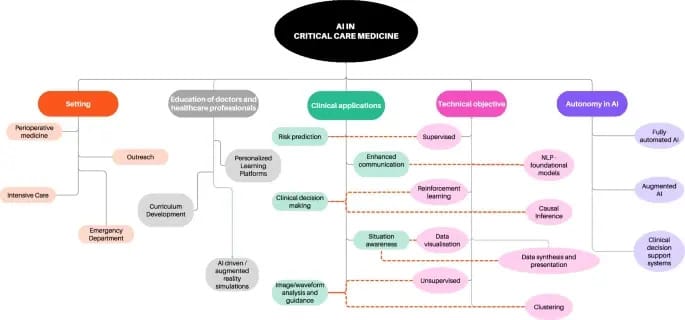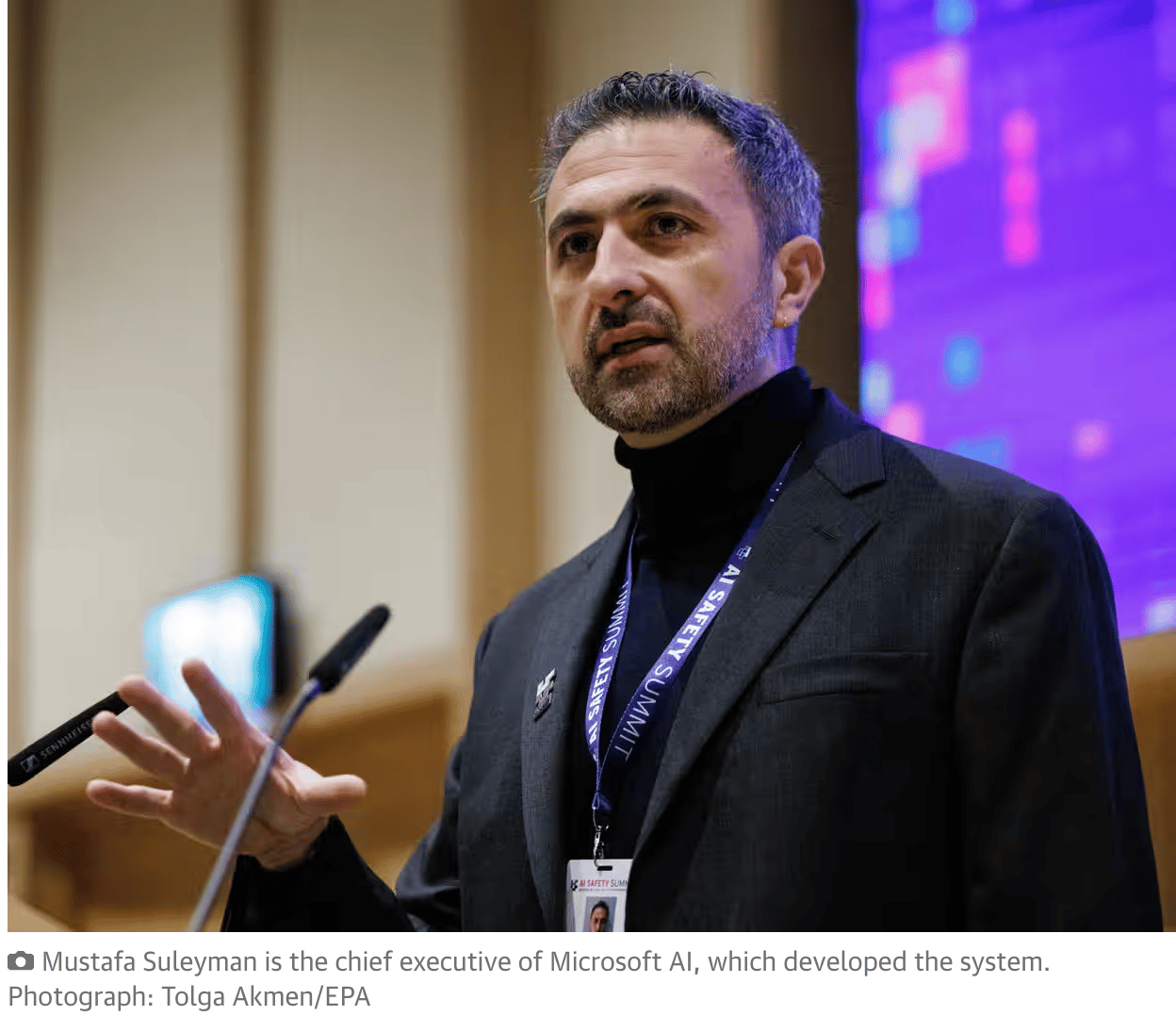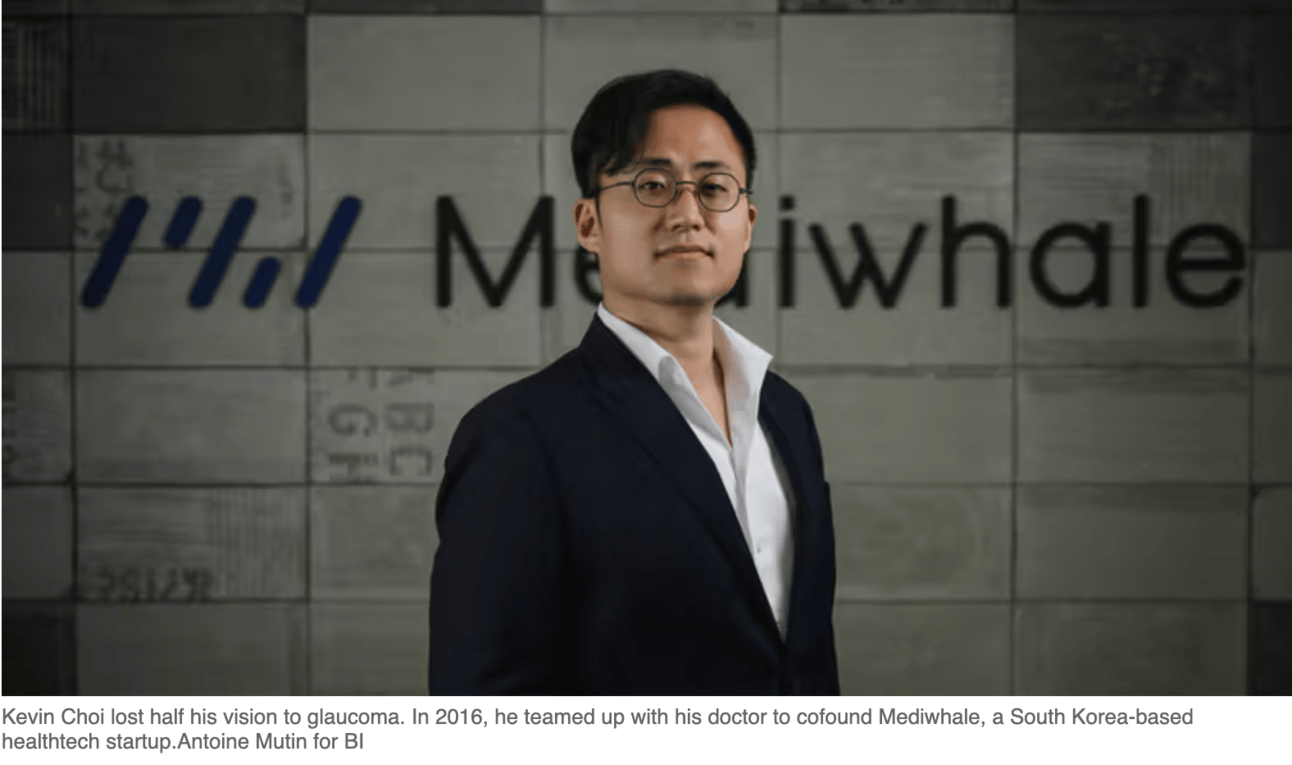- AI HealthWave
- Posts
- 🌊 AI helps a couple conceive after 18 years of infertility
🌊 AI helps a couple conceive after 18 years of infertility
PLUS: Microsoft AI achieves 85% diagnostic accuracy

🕒 Read time: 3 minutes
Good morning. After 18 years of fertility treatments that found zero viable sperm, Columbia University's AI system discovered three hidden cells in just one hour — and those three cells just delivered the world's first AI-enabled pregnancy. But can this breakthrough technology scale to fertility centers nationwide and transform outcomes for couples who've been told biological parenthood is impossible? Let's find out…
This week's waves:
AI helps a couple conceive after 18 years of infertility
ICU experts unveil AI implementation consensus
Microsoft AI achieves 85% diagnostic accuracy
Israel explores new AI healthcare regulation framework
Leader spotlight
5 trending AI-powered medical devices, 5 upcoming healthcare events, and funding, acquisitions, & investments
Plus, more crucial AI healthcare stories…
Forwarded this email? Sign up for free here
🩺 AI'S IMPACT ON PATIENT CARE
Summary: After 18 years of heartbreaking failed IVF attempts and globe-trotting between fertility centers, one couple's journey to parenthood ended when Columbia University's revolutionary STAR AI system found three precious sperm cells that human technicians couldn't locate in two full days of searching. Dr. Zev Williams and his team spent five years developing the Sperm Tracking and Recovery system that captures over 8 million images in under an hour, identifying viable sperm with surgical precision in men with azoospermia—a devastating condition affecting up to 10% of infertile men where traditional analysis finds zero sperm cells. Read more →
Why it matters: This breakthrough transforms male infertility treatment by eliminating invasive testicular surgery and providing hope to 540,000 American men previously told they could never father biological children, while costing just $3,000 compared to multiple surgical procedures that often cause permanent scarring.
Summary: Groundbreaking research from UVA Health, Stanford, and Harvard's Beth Israel reveals a shocking paradox: ChatGPT alone achieved 92% diagnostic accuracy on complex medical cases while human doctors using the AI as an assistant performed nearly identically to those using traditional resources. The randomized controlled trial involving 50 physicians found that doctors were "wedded to their own diagnoses" and refused to change course even when AI provided superior insights, with lead researcher Dr. Rodman expressing surprise that physicians "didn't listen to AI when AI told them things they didn't agree with." Read more →
Why it matters: This cognitive bias threatens to undermine AI's transformative potential in healthcare, revealing that the biggest barrier to AI adoption isn't technological limitations but physician resistance to accepting algorithmic guidance that could save thousands of lives annually.
🤖 PROVEN AI APPLICATIONS IN HEALTHCARE
Summary: Twenty-two leading critical care experts published an unprecedented consensus demanding immediate action on AI integration in intensive care units, warning that current unstructured deployment "may be hindered or possibly lead to patient harm and unintended consequences." The multidisciplinary panel identified critical barriers including algorithmic bias affecting vulnerable populations, lack of temporal and geographic validity across different institutions, and the risk of weakening the fundamental physician-patient relationship that forms medicine's ethical foundation. Read more →
Why it matters: With overwhelmed ICUs facing severe staff shortages and rising costs, this expert framework provides the first comprehensive roadmap for safely implementing AI in critical care environments while maintaining human-centric medicine and avoiding catastrophic deployment failures that could devastate patient outcomes.
Summary: Mayo Clinic researchers revolutionized post-operative care by developing an AI system that analyzes patient-submitted smartphone photos to identify surgical site infections with unprecedented precision—achieving 94% accuracy in detecting incisions and 81% AUC in flagging infections. Trained on over 20,000 images from 6,000+ patients across nine Mayo facilities, Dr. Cornelius Thiels and his team created a two-stage Vision Transformer model that first confirms surgical incision presence, then evaluates infection risk, dramatically reducing the time-consuming manual review process that often delays critical care decisions. Read more →
Why it matters: This breakthrough enables instant triage of post-surgical complications through patient smartphones, potentially transforming outpatient monitoring by providing 24/7 infection screening capability while reducing readmission rates and catching life-threatening complications before they become critical emergencies.
💡NEW DEVELOPMENTS & INNOVATIONS
Summary: Microsoft shocked the medical establishment by revealing its AI Diagnostic Orchestrator (MAI-DxO) correctly diagnosed 85.5% of complex New England Journal of Medicine cases compared to just 20% accuracy from experienced physicians, while simultaneously reducing diagnostic costs through intelligent test selection. CEO Mustafa Suleyman called it "a genuine step toward medical superintelligence," with the system mimicking a virtual panel of collaborating doctors to tackle medicine's most challenging diagnostic puzzles using advanced model orchestration rather than single AI approaches. Read more →
Why it matters: This breakthrough demonstrates AI's potential to eliminate the 25% waste in U.S. healthcare spending worth over $1 trillion annually, while providing rural and underserved populations access to world-class diagnostic capabilities that rival the most elite medical centers globally.
Summary: Alphabet's secretive drug discovery arm, Isomorphic Labs, announced it's "getting very close" to testing AI-designed cancer drugs in human trials, with President Colin Murdoch revealing teams are actively "collaborating with AI to design drugs for cancer" at their King's Cross facility. Built on Nobel Prize-winning AlphaFold technology, the company has already secured multi-billion-dollar partnerships with Novartis and Eli Lilly while raising $600 million to advance its audacious mission to compress traditional 15-year drug development timelines through digital biology breakthroughs. Read more →
Why it matters: These trials represent humanity's first attempt to deploy fully AI-designed medications in human patients, potentially revolutionizing pharmaceutical development by improving success rates from the current 10% to near-certainty while making life-saving treatments accessible at dramatically reduced costs worldwide.
⚖️ AI IN HEALTHCARE REGULATIONS
Summary: Israel is pioneering a bold regulatory approach by establishing controlled "sandbox" environments for AI healthcare applications, addressing critical challenges around patient data privacy, treatment safety and efficacy, and strict medical compliance standards. This innovative framework allows healthcare AI companies to test breakthrough technologies under regulatory supervision while maintaining rigorous oversight, positioning Israel as a potential model for nations struggling with AI governance in high-stakes medical environments. Read more →
Why it matters: As global healthcare systems face regulatory paralysis around AI implementation, Israel's sandbox approach could provide the blueprint for balanced innovation that maintains patient safety while accelerating access to life-saving AI technologies, giving participating organizations competitive advantages in the rapidly evolving digital health landscape.
Summary: Dr. Alexander Sundermann's explosive analysis reveals that while 63% of physicians already use AI tools and Epic reports that over half its clients deploy generative AI features, the Trump administration has systematically dismantled federal oversight by revoking HHS's AI strategic plan and dissolving AHRQ through massive staff layoffs. The epidemiology professor warns that tech vendors are now "playing referee, player, and scorekeeper all at once" in a dangerous policy vacuum, with only 3% of 249 AI healthcare studies tested in clinical practice and fewer than 8% measuring real-world impact on patient outcomes. Read more →
Why it matters: Without structured federal guidance, healthcare systems risk repeating the catastrophic EHR implementation failures that created clinician burnout and interoperability chaos, while smaller health systems face competitive extinction as they cannot afford rapid AI integration that larger rivals are deploying without adequate safety testing.
🎤 LEADER SPOTLIGHT
Kevin Choi, Co-founder of Mediwhale, shares how losing half his vision to glaucoma at 26 inspired him to develop AI-powered retinal screening technology that detects cardiovascular and kidney diseases early, while emphasizing that AI enhances but never replaces human medical judgment. Read more →
🔬 5 TRENDON AI-POWERED MEDICAL DEVICES
StateViewer by Mayo Clinic: An AI tool that identifies 9 types of dementia, including Alzheimer's, with 88% accuracy using a single brain scan.
BioEmu by Microsoft: A deep learning model that generates thousands of protein structures per hour to accelerate drug discovery and protein engineering.
MedGemma by Google: Open multimodal AI models that process medical text and images for healthcare application development.
Biomni by Stanford: General-purpose biomedical AI agent that autonomously executes research tasks across diverse biomedical domains.
Sunoh.ai Medical Scribe: AI ambient listening technology that converts patient conversations into clinical documentation, saving providers up to 2 hours daily.
🗓️ 5 UPCOMING HEALTHCARE EVENTS
Aug 11–13: HLTH USA 2025 (Las Vegas, NV) – Groundbreaking solutions in digital health, AI, and healthcare innovation
Aug 15–16: Machine Learning for Healthcare 2025 (Rochester, MN) – Research-driven advances in AI/ML applications for patient care and clinical workflows
Aug 19–20: AI in Health Conference 2025 (Toronto, Canada) – Cross-sector insights on AI in diagnostics, drug discovery, and healthcare operations
Aug 21: US Southeast Healthcare Innovation Summit 2025 (Atlanta, GA) – Healthcare delivery transformation through AI, tech partnerships, and digital health models
Sept 10:AI in Health Summit (London, UK) – Real-world adoption of AI in healthcare, featuring global leaders in health tech and data science
💰FUNDING, ACQUISITIONS, & INVESTMENTS
The biggest financial risk for investors in the AI era, according to Arkin Digital Health
Glytec secures $36 Million Growth Investment to accelerate AI-Powered Diabetes Technology Platform Innovation
Prompt Health acquires PredictionHealth to Amplify AI-Driven Rehab Therapy Innovation
Abridge secures $300M Series E Led by a16z to Pioneer a New Paradigm of Care Intelligence
🤝 PARTNER WITH US
Interested in reaching thousands of healthcare professionals, decision-makers, and high-level executives worldwide? Reply to this email to learn more about partnership opportunities with AI HealthWave.
If you have any comments or feedback, please respond to this email and let us know.
Thank you for reading.
Until next Tuesday!
- Bashir Musa
The AI Health Explorer
Founder & CEO, AI HealthWave
P.S. Enjoyed this issue? Please help keep AI HealthWave free by forwarding this newsletter to friends and colleagues who would benefit from these insights. Thank you for your support :)
🙏 YOUR FEEDBACK





Reply